Here is a selection of the most funny French expressions in pictures!
They can sometimes seem very strange for someone who is learning French, so below you’ll find some very necessary explanations…
1 To give your tongue to the cat
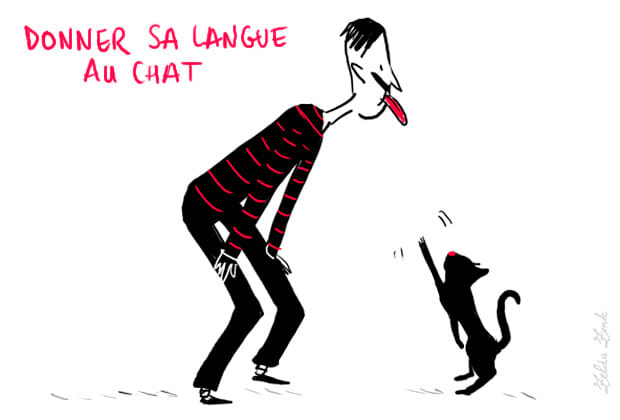
In the past, we used to say “throw your tongue at the dog”. This expression had a devaluing meaning because at the time, only the leftover food was “thrown” to the dogs. “Throwing your tongue at the dogs” meant that you no longer wanted to look for the answer to a question. Gradually, the expression was transformed into “giving the cat its tongue” in the 19th century. Indeed, at that time, the cat was considered as a guardian of secrets. His word would therefore be of considerable value, and it could be a matter of “giving his tongue to the cat”, to let him speak so that he could give us the answer to a riddle.
2 To crush black
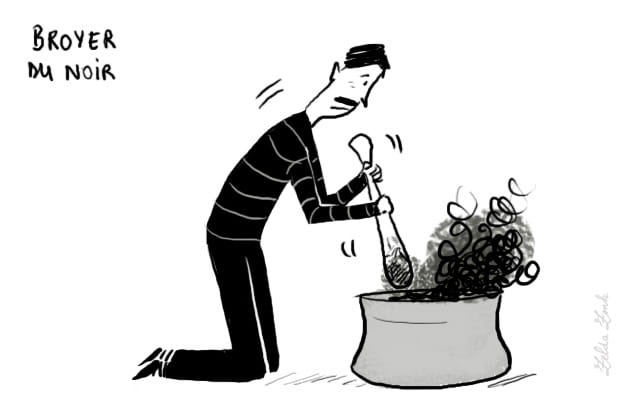
Crushing black: being sad, in a bad mood, depressed and not getting out.
The origins of this expression remain unclear. However, it seems to go back to the 18th century. Black has always been a symbol of sadness and melancholy. As for the use of the verb “to crush”, it could come from the language of painting where artists had to “crush” their paint.
3 Riding your big horses
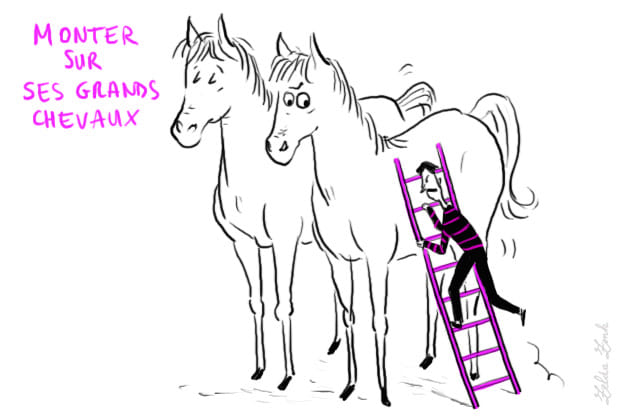
In the past, when horses were still used for warfare, “battle horses” were used, otherwise known as “steeds” (because the knights led them with their right hand). These horses were very big and strong, so knights could better dominate their opponent. The image of the brave knight leaving to defend his interests or those of his country “on his faithful steed” has remained, and it is since the 16th century that it is said that a person “rides his big horses” when he gets carried away and sometimes becomes aggressive when he tries to defend his point of view.
4 To smoke like a firefighter
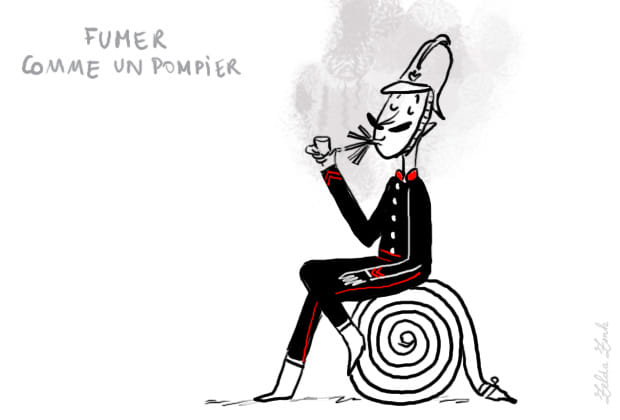
This expression goes back to the time when firefighters did not yet have fireproof clothing, they wore clothes that they watered before entering the flames. At high temperatures, this water turned into steam, smoke seemed to escape from them.
5 To unhook the moon
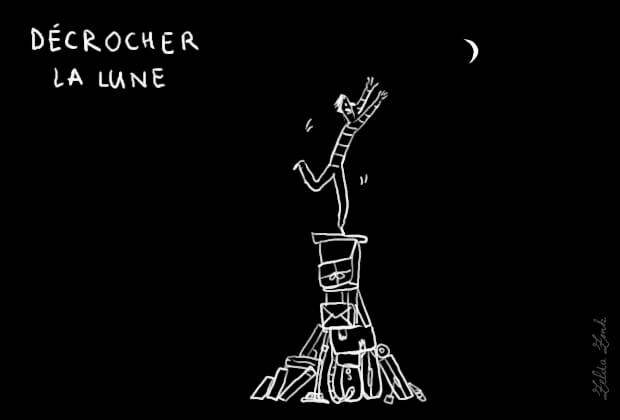
The moon, a luminous and mysterious star, often seems very close to the Earth, and therefore easy to catch. Appearances are obviously misleading since man’s first step on the Moon had to wait until 1969. Nevertheless, the moon has always fascinated us. In the 16th century, the expression was “taking the moon with your teeth”, then turned into “taking the moon down”, to indicate that you got something you thought was impossible.
6 To have your heart on the hand
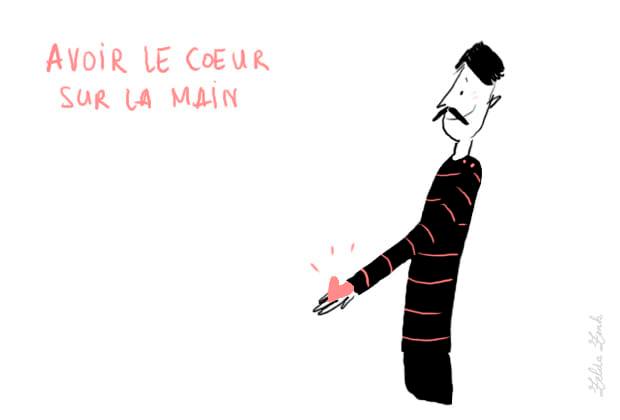
The expression goes back to the 18th century and refers to the heart as the seat of emotions. It shows that a person has the heart, therefore the emotions and feelings, on his hand, in other words, that he is ready to offer. We can also imagine an extended hand, an even more powerful symbol of solidarity and generosity.
7 Make cheese out of it
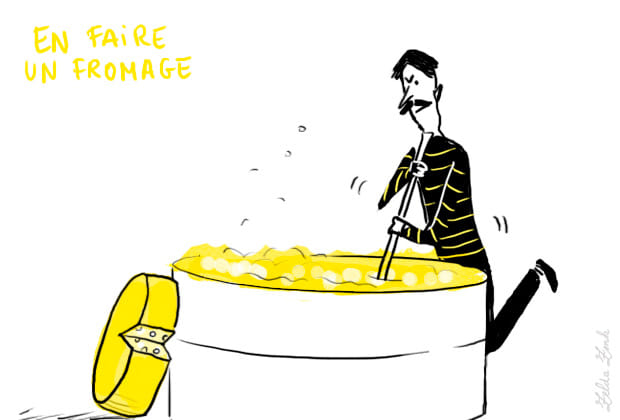
This expression dates back to the 20th century. Starting from milk (i.e. a simple element) and making cheese from it (a highly processed food) means that you can transform something that was simple into a complex thing.
8 To tell salads
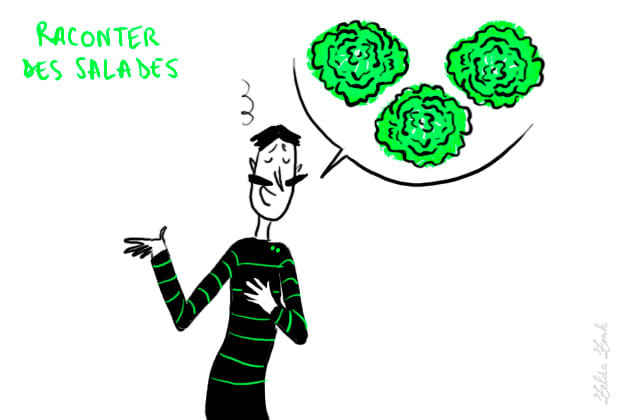
This expression dates back to the 19th century. It is a metaphor. A salad, an assortment of ingredients that blend well together, is compared to a set of gossips that, with a little humour and false excuses, can be seen as real.
9 To have the French fry
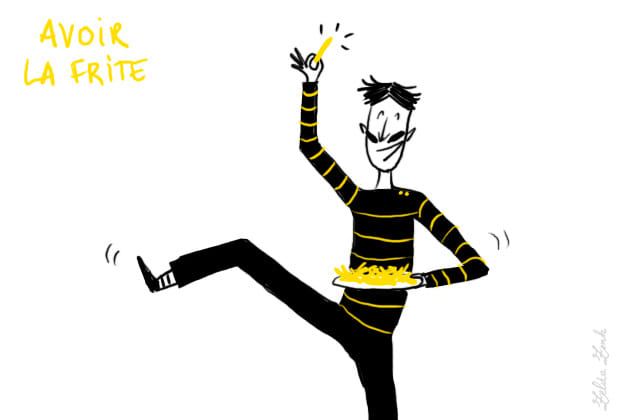
It is because of its rather round shape than in slang at the beginning of the 20th century, the potato has been assimilated to the head (like the pear before).
Without being certain, it is probably because the one in good shape has a good “potato” that, by going through a form like “he has a hell of a potato” we have reached “he has the potato”. As for the “fry”, it follows quite logically, but later, in the 70s. It is indeed from 1950 that the “fry”, like the “potato”, refers to the head, by a simple joke since, at the last news (and the Belgians will not deny it) it is with potatoes that we make the chips.
Then the influence of having the potato did the rest.
The expression seems to come from the world of actors; its origin is obscure. It belongs to the very familiar register and spread after 1965.
10 To be rolled in the flour
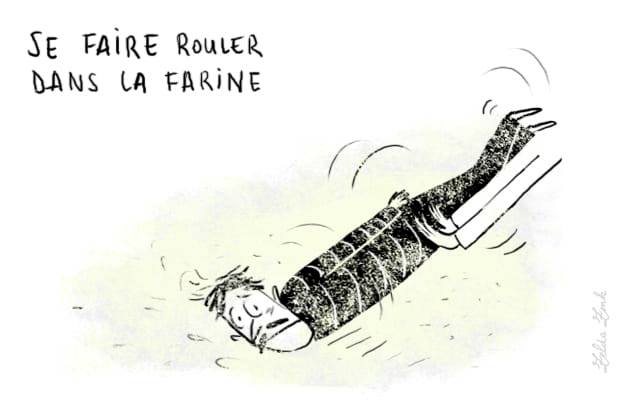
At the beginning of the 19th century, the verb “to roll” meant “to mislead, to deceive”. The “flour” symbolized fictitious arguments, “fine words”. “Getting rolled in the flour” means that you have been fooled by misleading arguments.
11 To fall into the apples
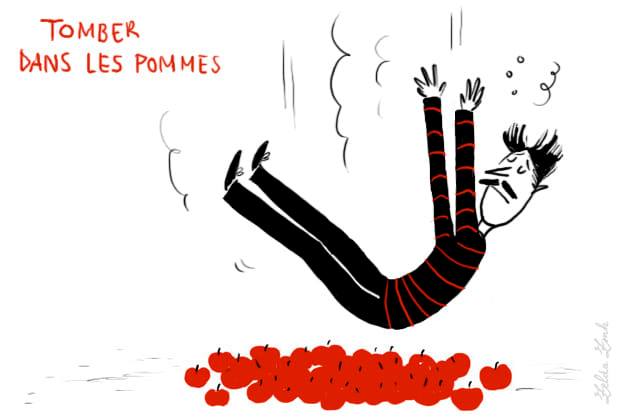
Falling into the apples: fainting
This expression, attested in 1889, has no very reliable origin. The first would come from the word “pâmer” (failing), which would have turned into “paumer” (getting lost) and then “pommes” (apples). Others tend to favour the thesis that the expression is taken from George Sand’s “Letters to Mrs. M. Dupin”, in which the author uses the expression “to be in the baked apples” to describe a state of severe fatigue.
12 To split hairs in four
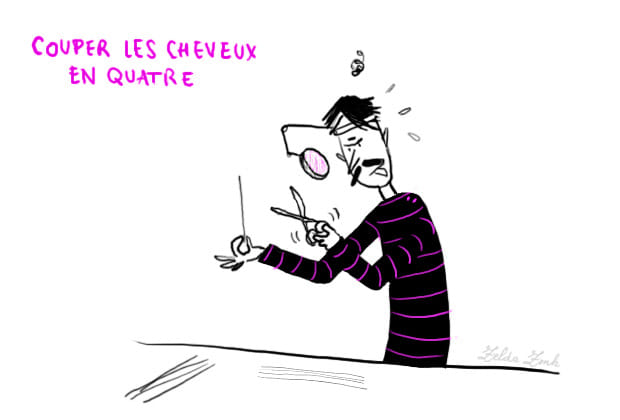
It was in the 17th century that this expression appeared in the form of “splitting hairs in four”. It represents an excessive care taken to do something. We can imagine that trying to cut a hair in four is lost in advance, and above all useless.
13 To put one’s hand in the fire
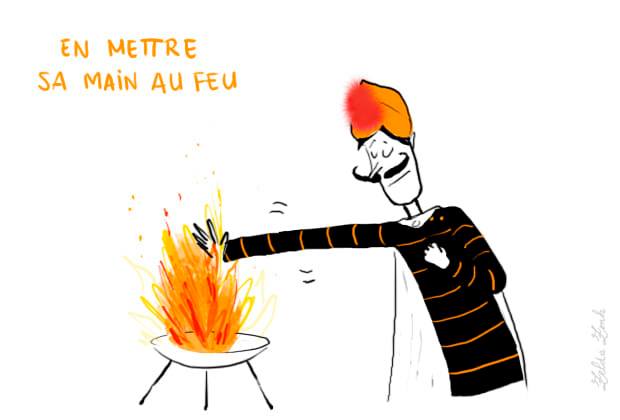
Put your hand in the fire: be absolutely sure of something
In the Middle Ages, when investigations into a person’s guilt were expected to be long and tedious, it was preferred to subject the accused to a test called the “judgment of God”. This one existed in different ways. These could be tournaments, duels, but also other forms of much more radical events. Sometimes an accused would be tied by his wrists and ankles and thrown into the water. If his body was floating, it was because he was guilty. It could also be holding an iron bar in your hands coming out of the embers or leaving your hand in the flames. If she emerged unscathed, it meant that we were innocent. “Putting your hand on the fire” is therefore a reference to this “judgment of God”, and it is used when you try to convince a person that you are right.
14 To have a hair on the hand
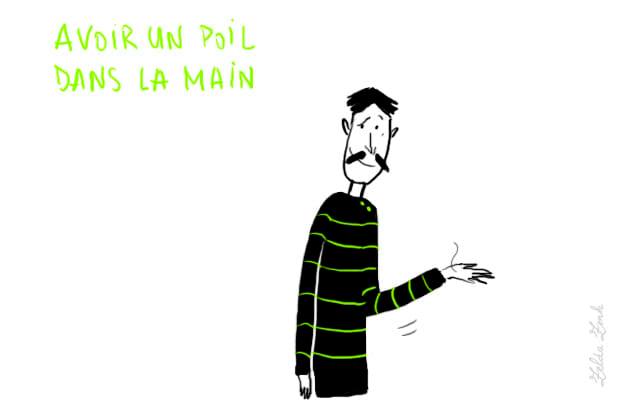
The expression seems to have existed since the 19th century. We used to say “having hair in our hands” to indicate that a person was lazy. We can clearly see the image of an individual who never uses his hands, and in which hairs could have grown….
15 To have a green hand
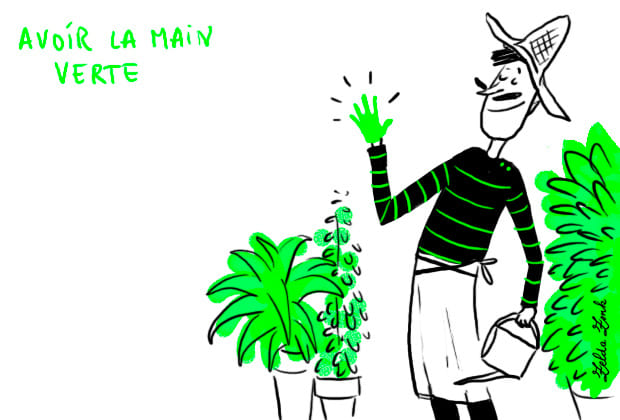
It is a version of a common expression: “to have the hand”, which refers to someone who is gifted in a particular field. As far as plants are concerned, no one will be surprised: most are green. This expression is quite recent, and dates from the middle of the 20th century.
16 The break someone’s feet

Originating from the slang of the late 19th century, “annoying someone” means annoying them a lot. The verb “to break” is to be taken in the sense of “to crush”.
17 To get back into one’s shell
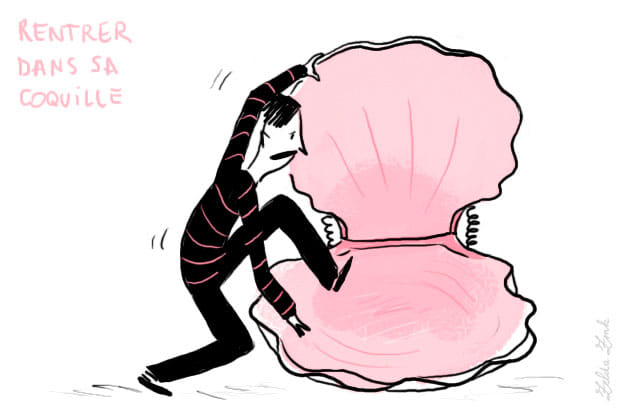
To enter, to remain… in its shell “to close oneself in isolation, inaction”. In the 17th century, falling into its shell meant more precisely “withdrawing from a reckless enterprise”. As in the antonymous expression coming out of its shell (late 17th century), the metaphor is based on the behaviour of the snail and similar animals.
18 To be washed out
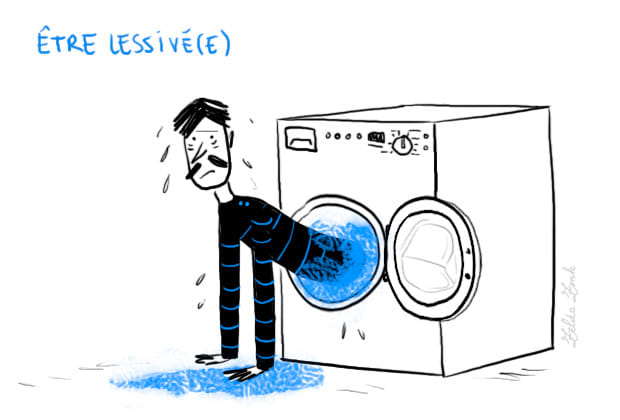
Being washed out: being very tired
Figurative meaning appeared in 1866. Familiar language meaning “to strip (his opponent at the game)”. See also: cleaning, rinsing. Eliminate from a competition, from a position. He washed himself out in no time. By extension: to be washed out, exhausted, very tired.
19 To have one’s head in the clouds
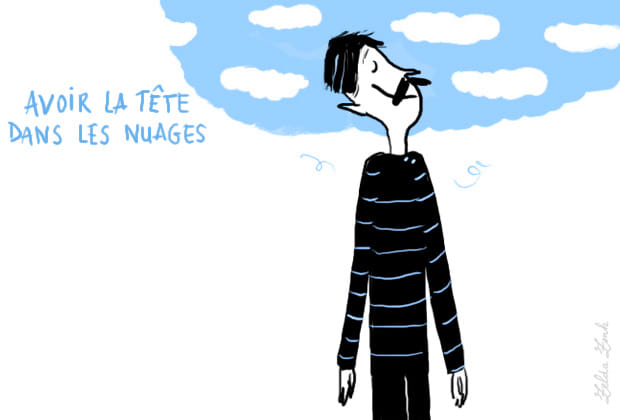
Being in the clouds: being distracted, “in the moon”.
The position in height and the nebulous matter expressing the loss of contact with reality, symbolized by the earthly ground (opposite: having your feet on the ground).
20 To put a rabbit down
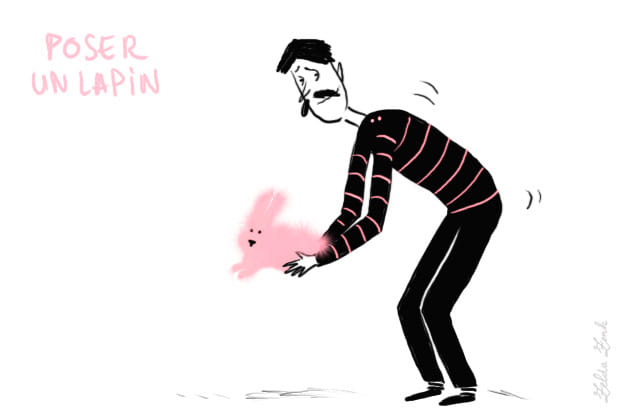
“To put a rabbit down” nowadays means not going to an appointment, without warning the person who is waiting for us. However, the meaning was once different. In 1880, for example, this meant “not paying a young girl for her favours”. Indeed, at that time, the “rabbit” referred to a refusal to pay. Subsequently, he also designated an illegal traveller. The expression, in its current form, appeared around 1890 among students, and could come from “letting someone pose”, which means “keeping someone waiting”.
21 To throw money out the window
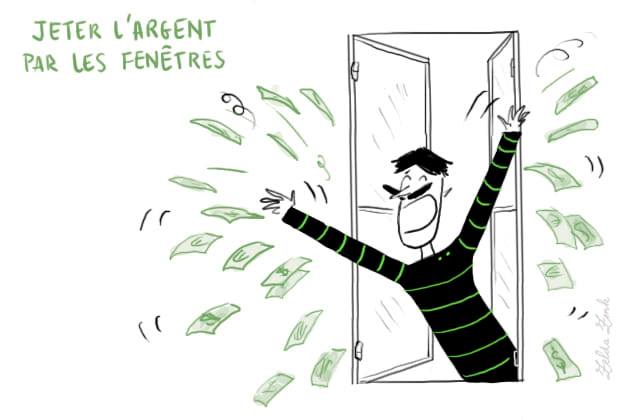
In the 16th century, beggars were given money by throwing it at them through the window. That is why the expression that means that we are very spendthrifty has persisted.
Consulté sur Lewebpedagogique
https://lewebpedagogique.com/culturefrancaisepourtous/vie-quotidienne/les-expressions-courantes/

